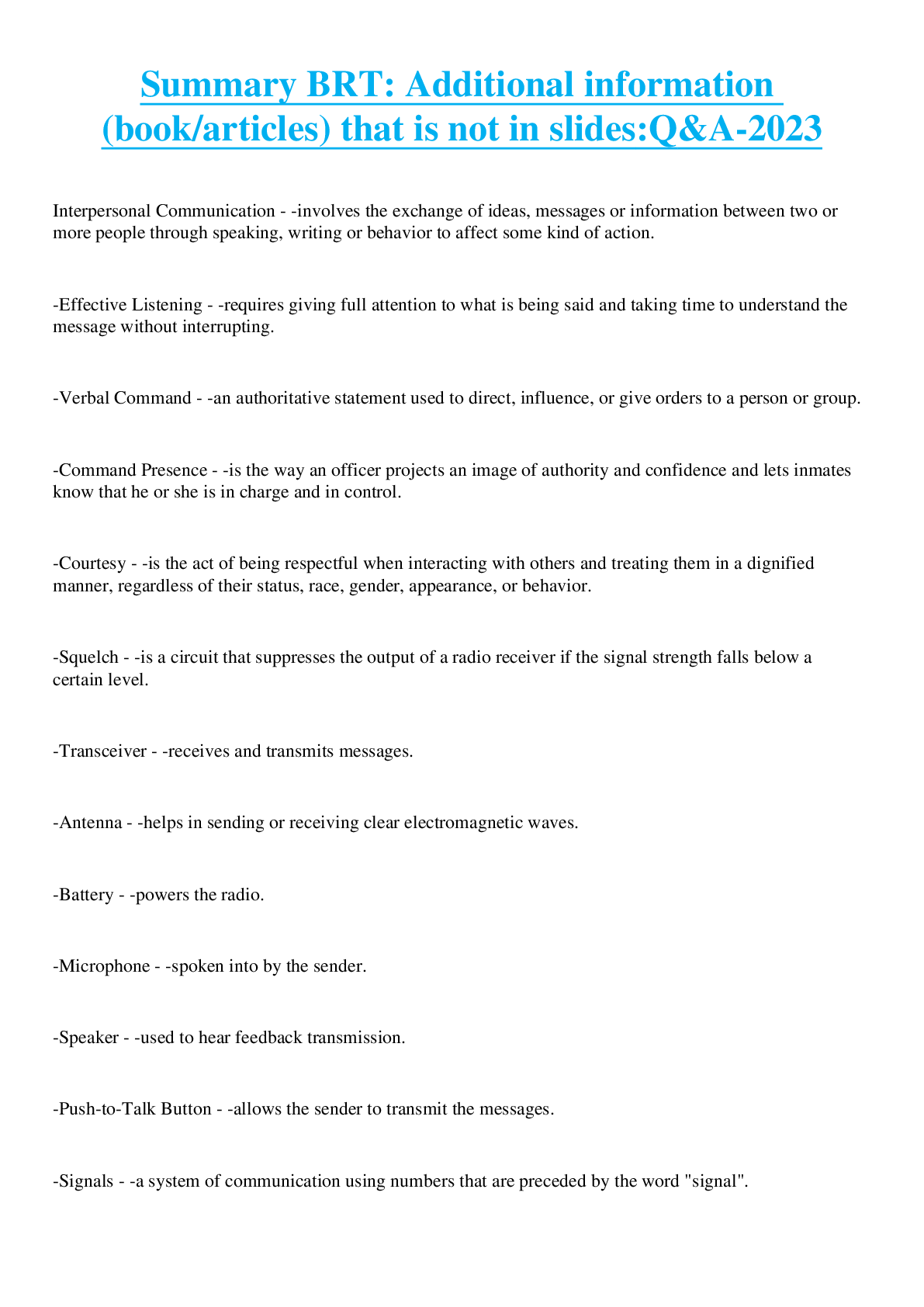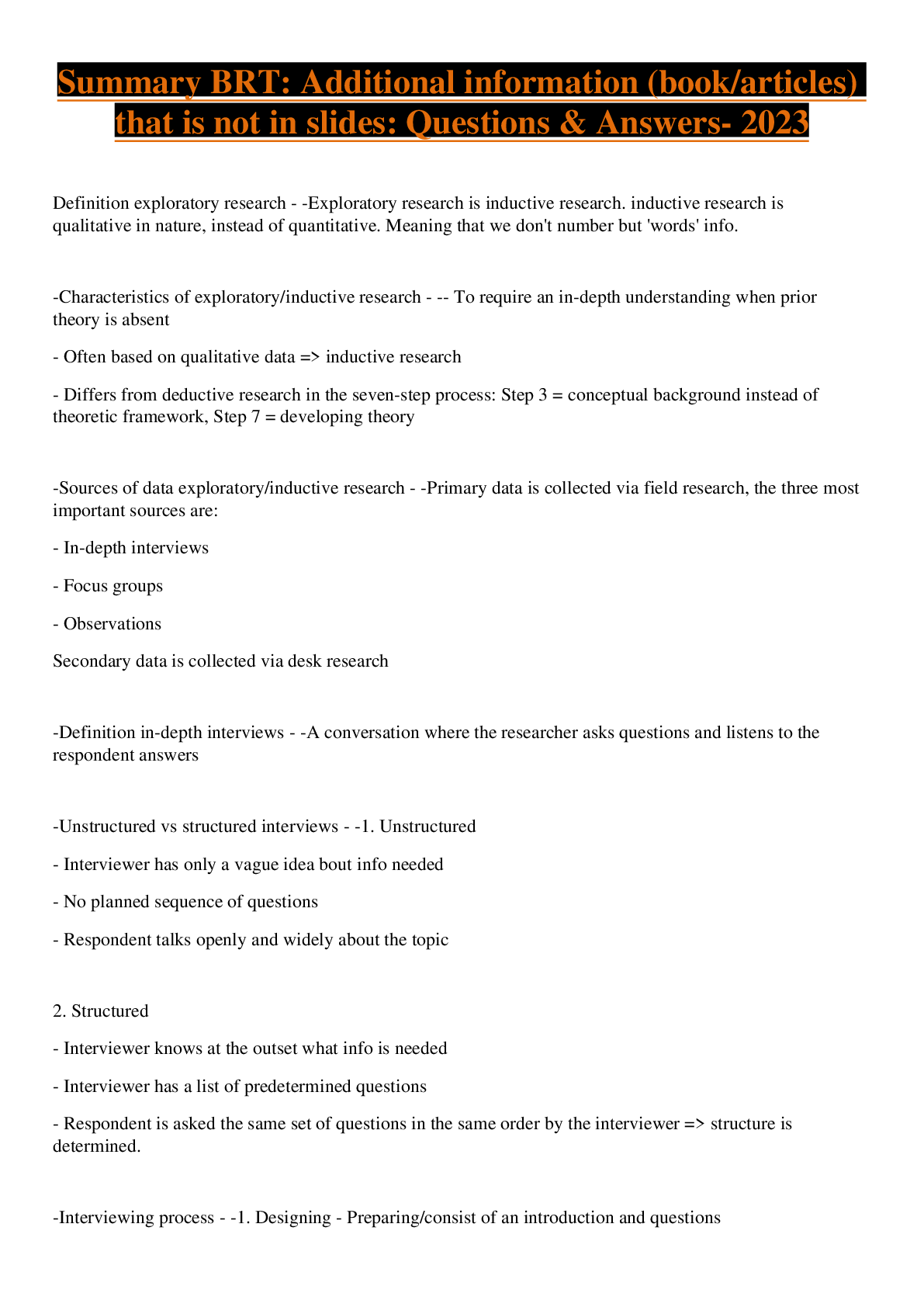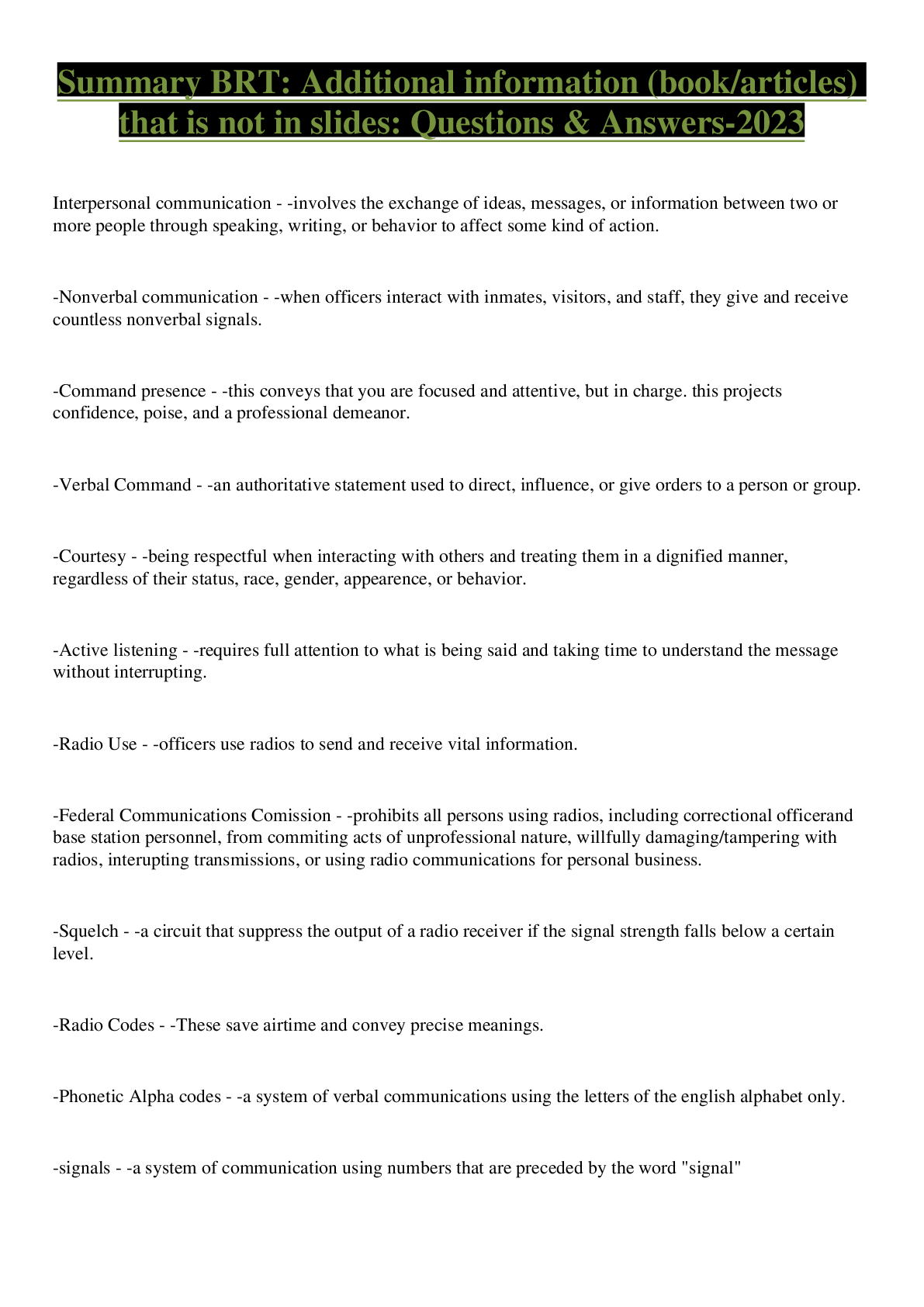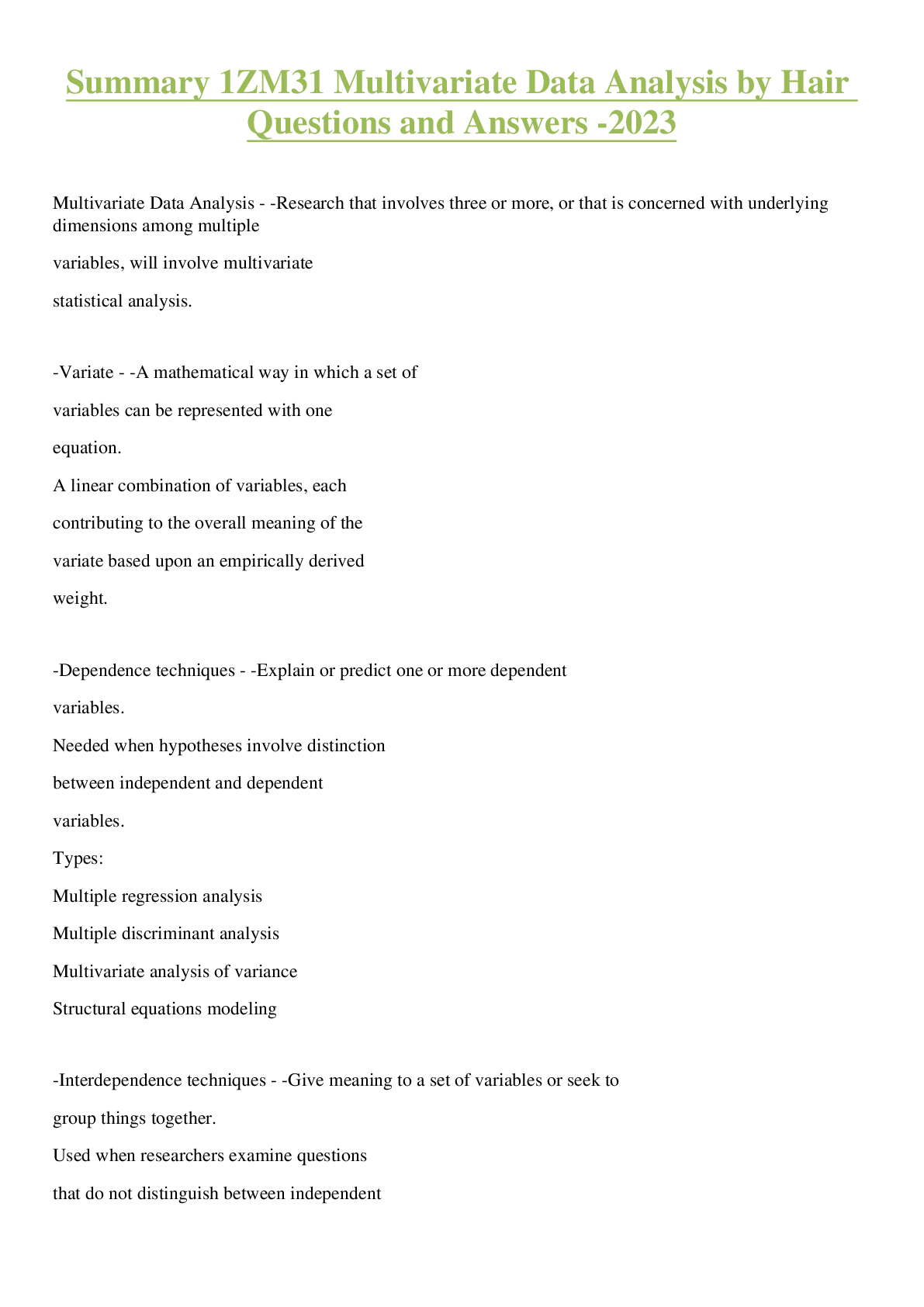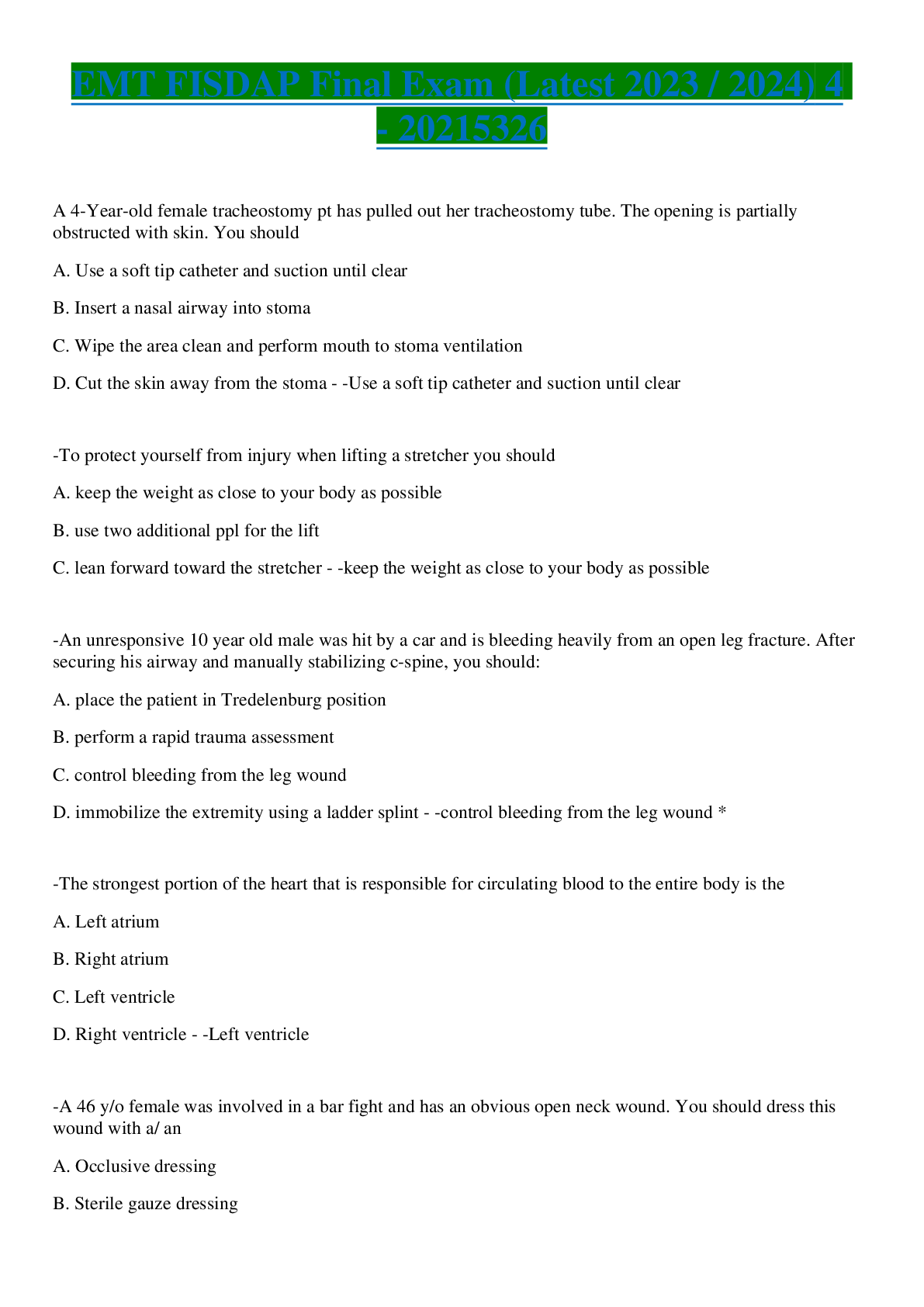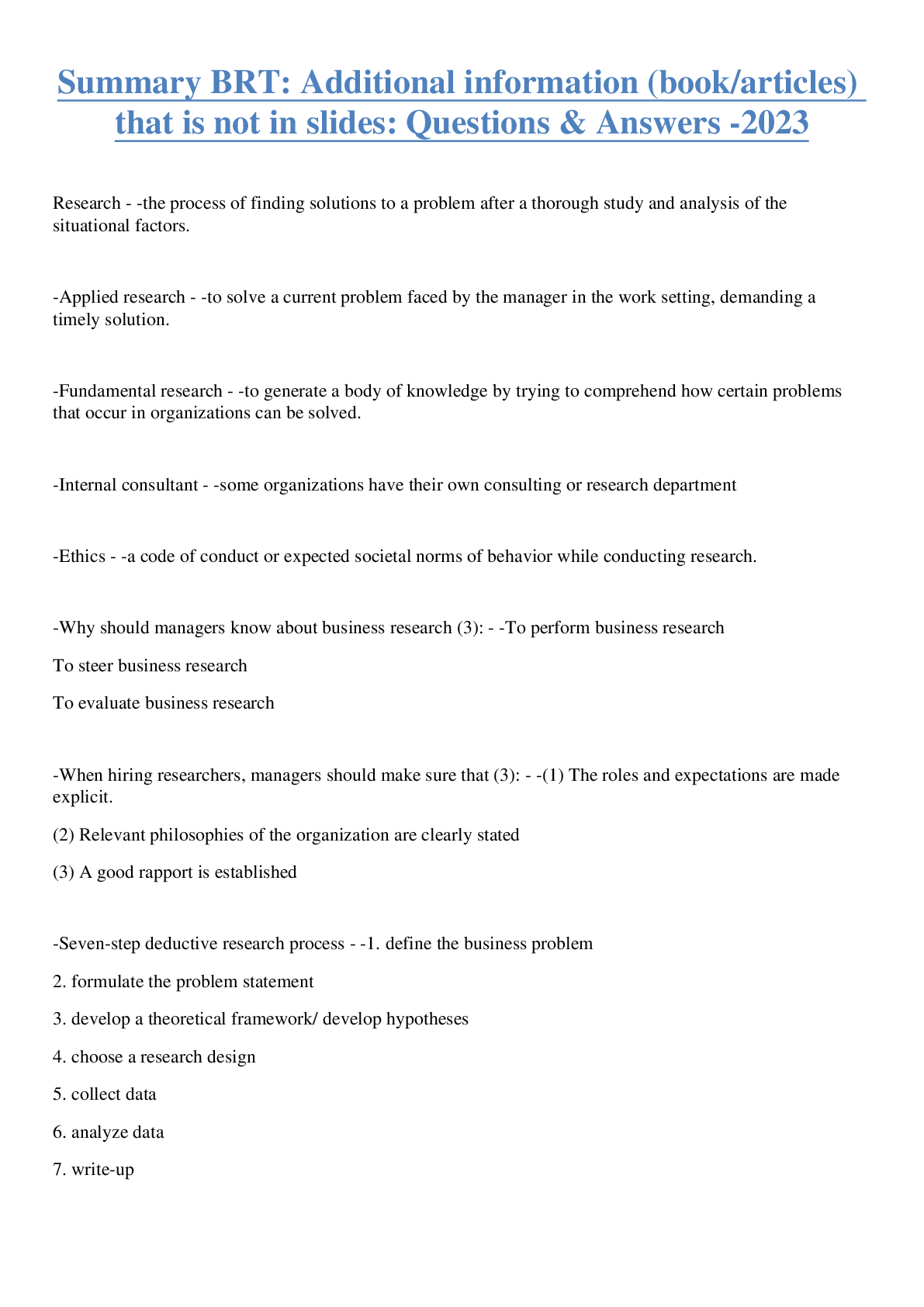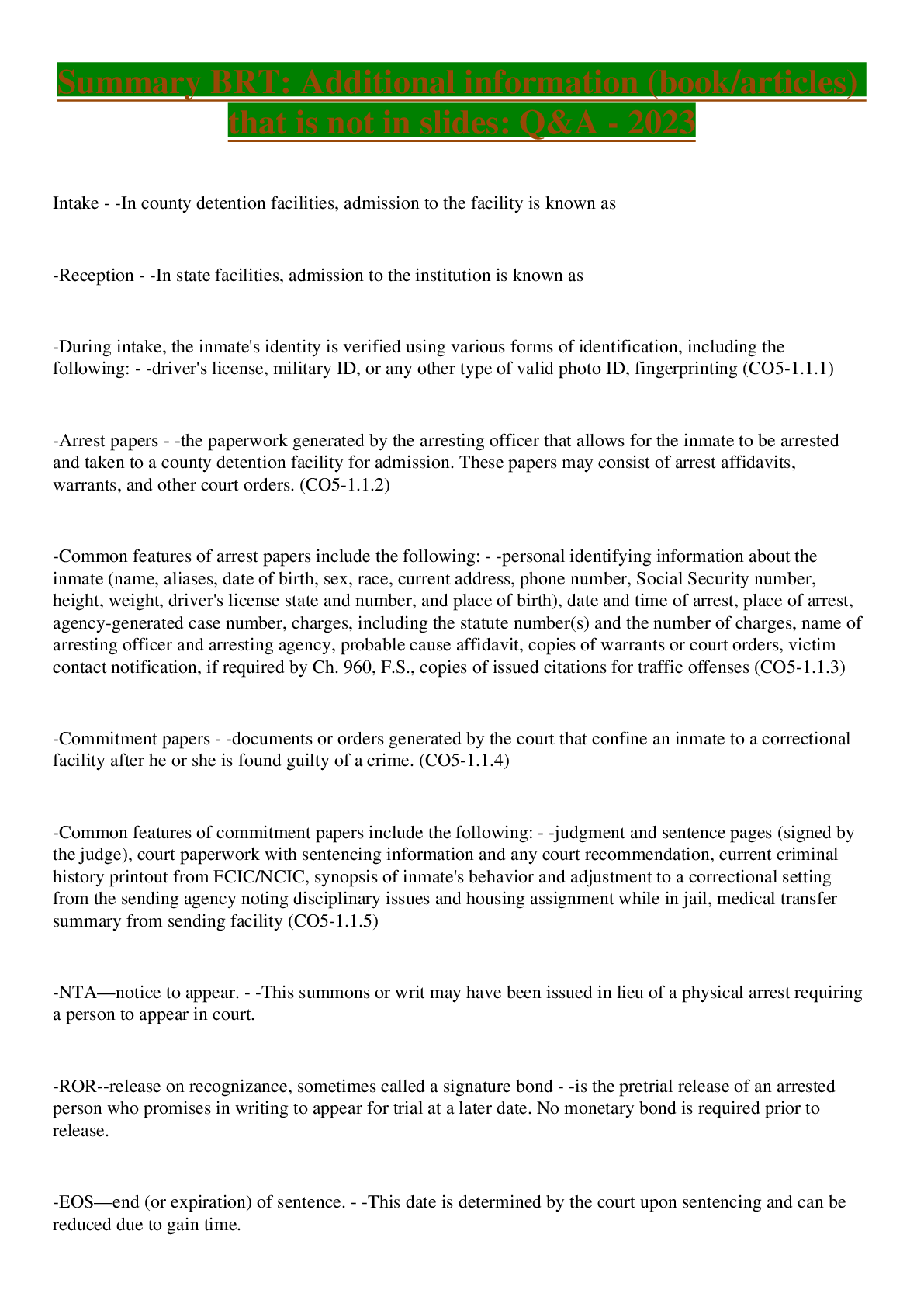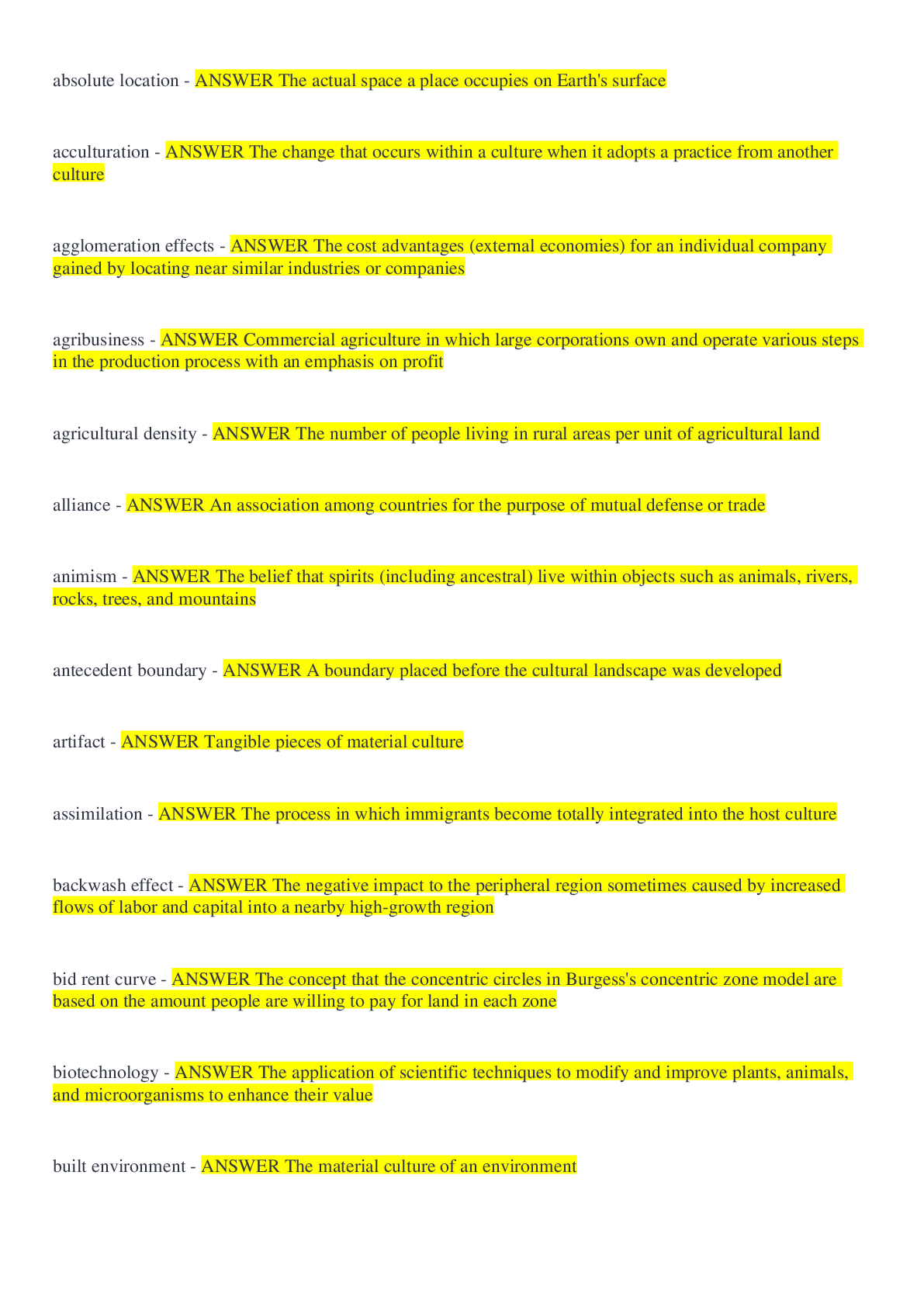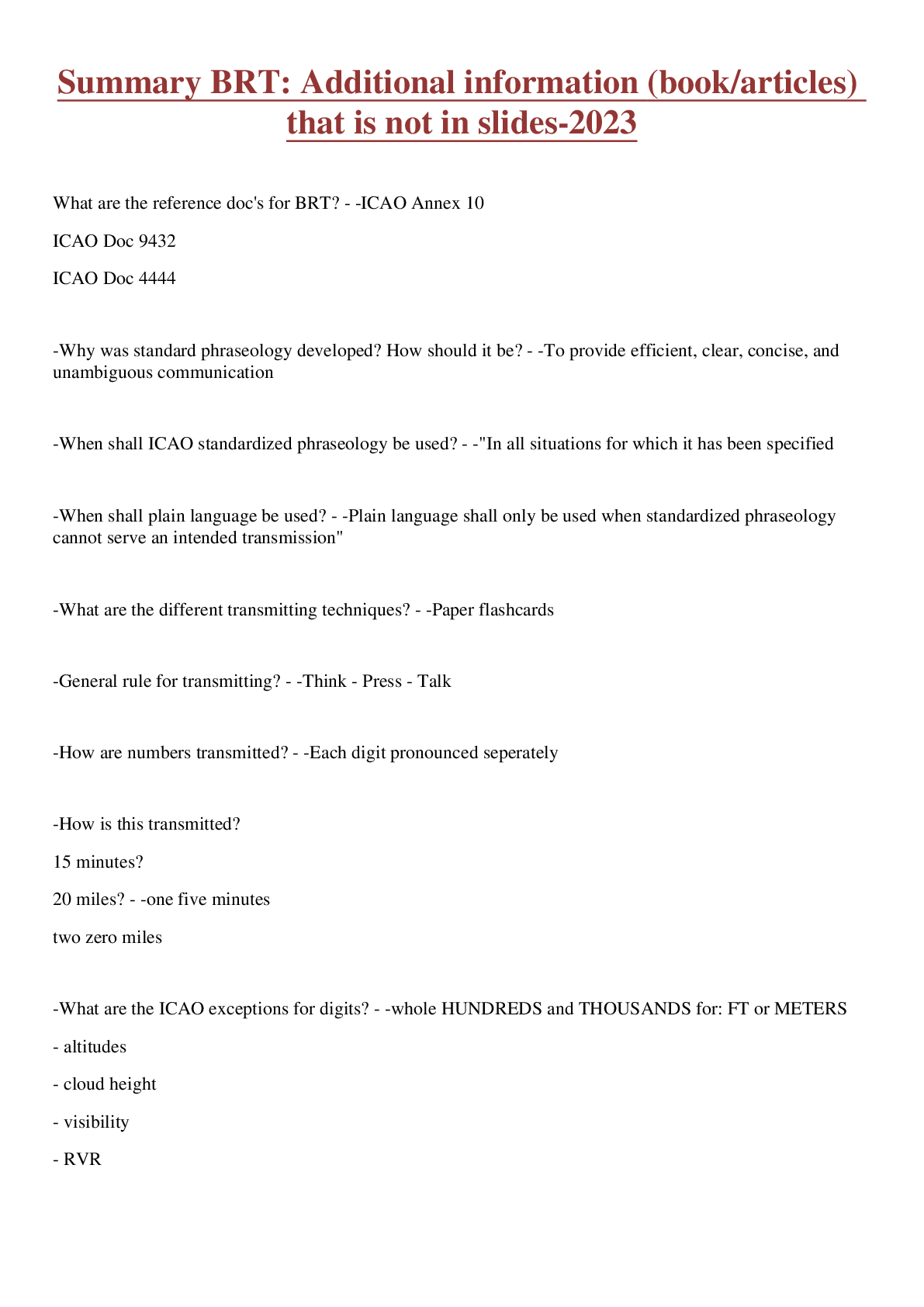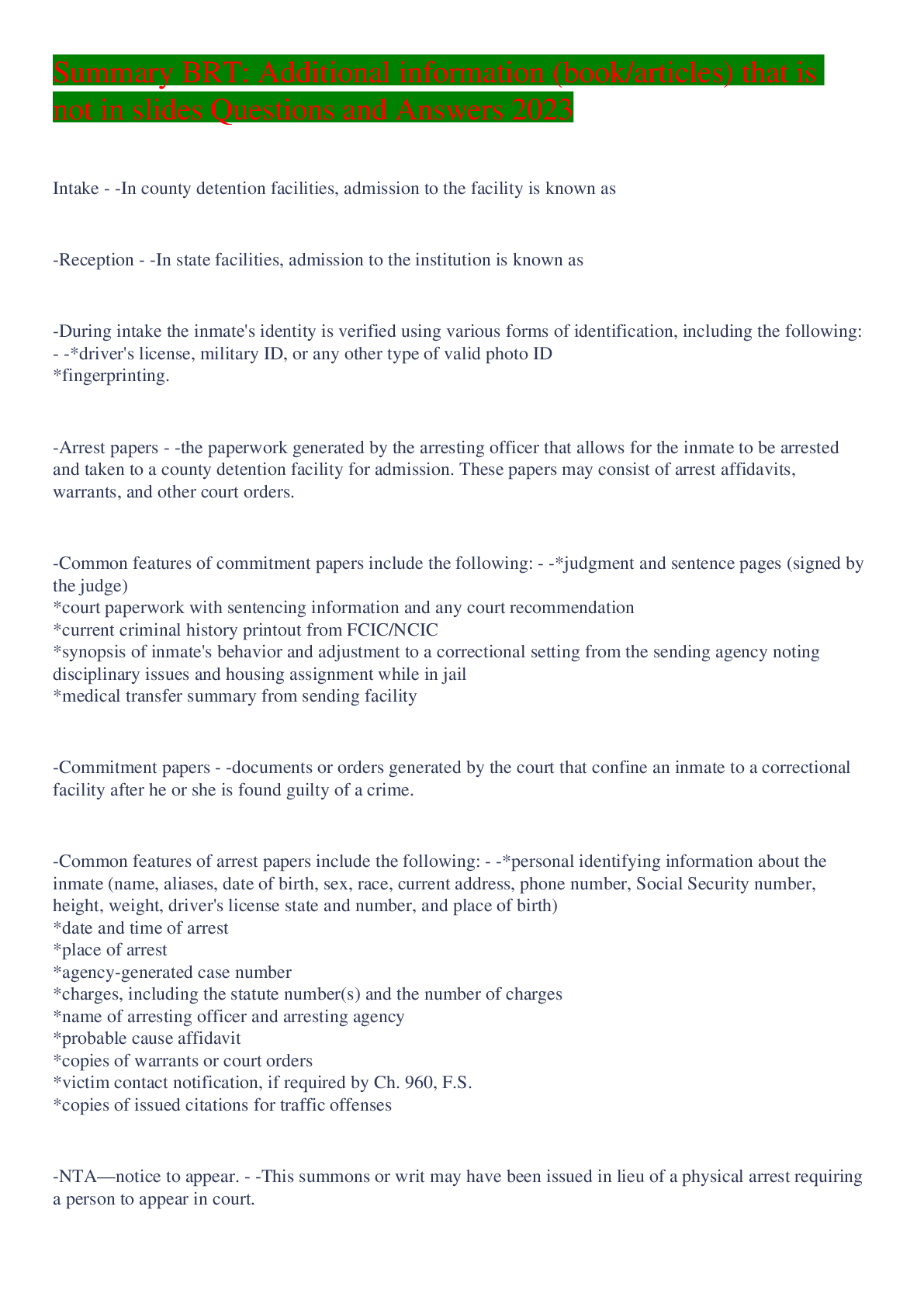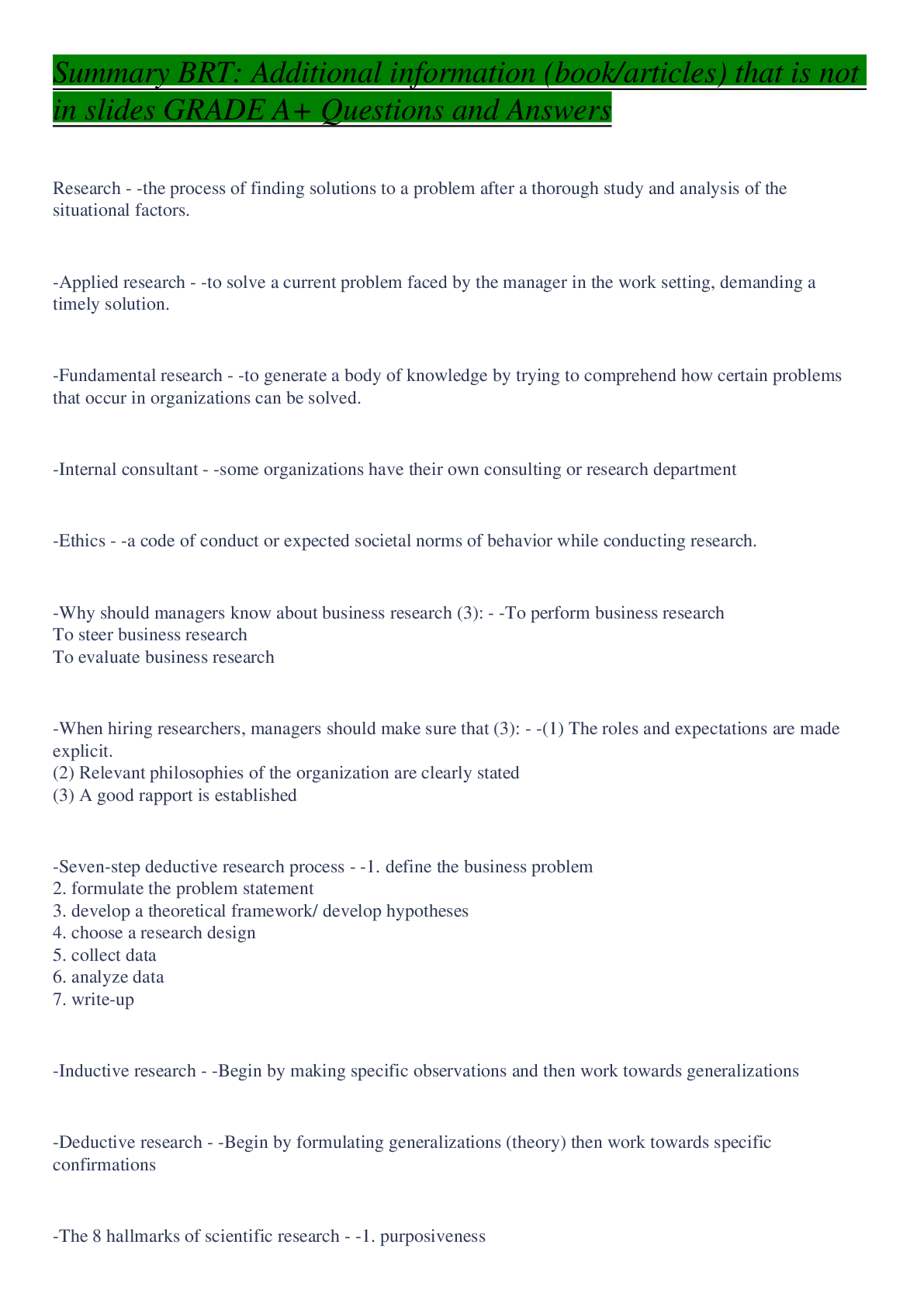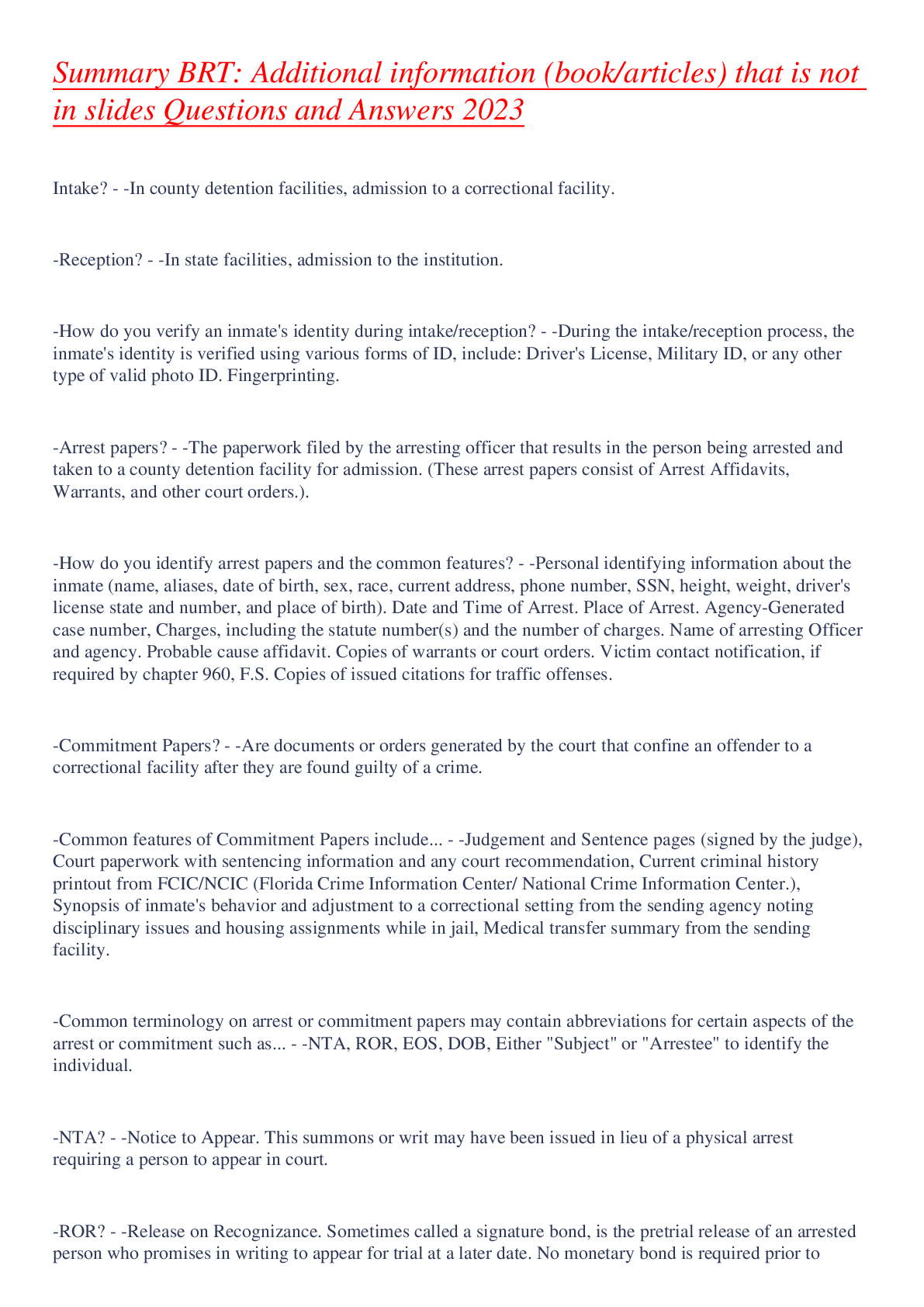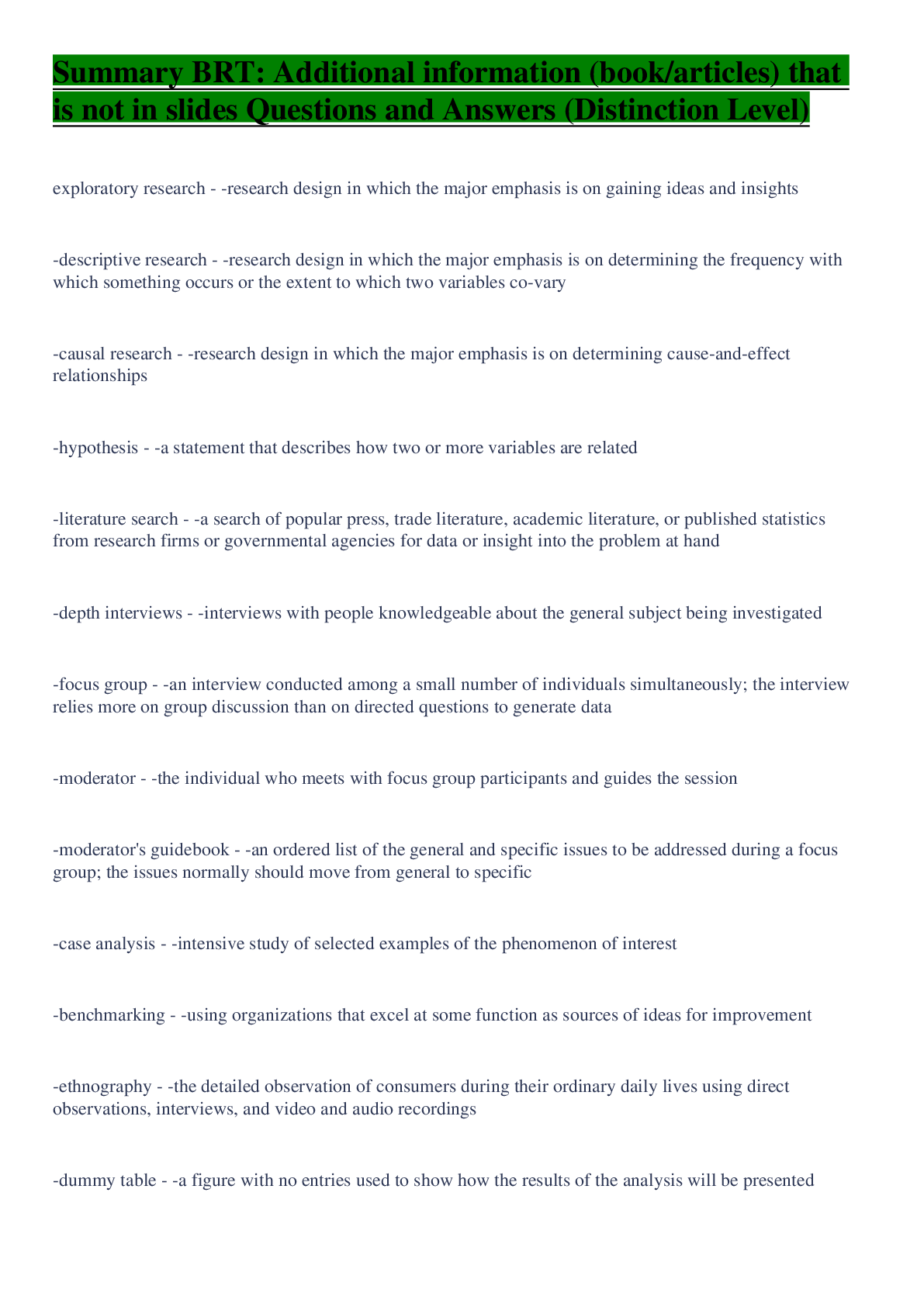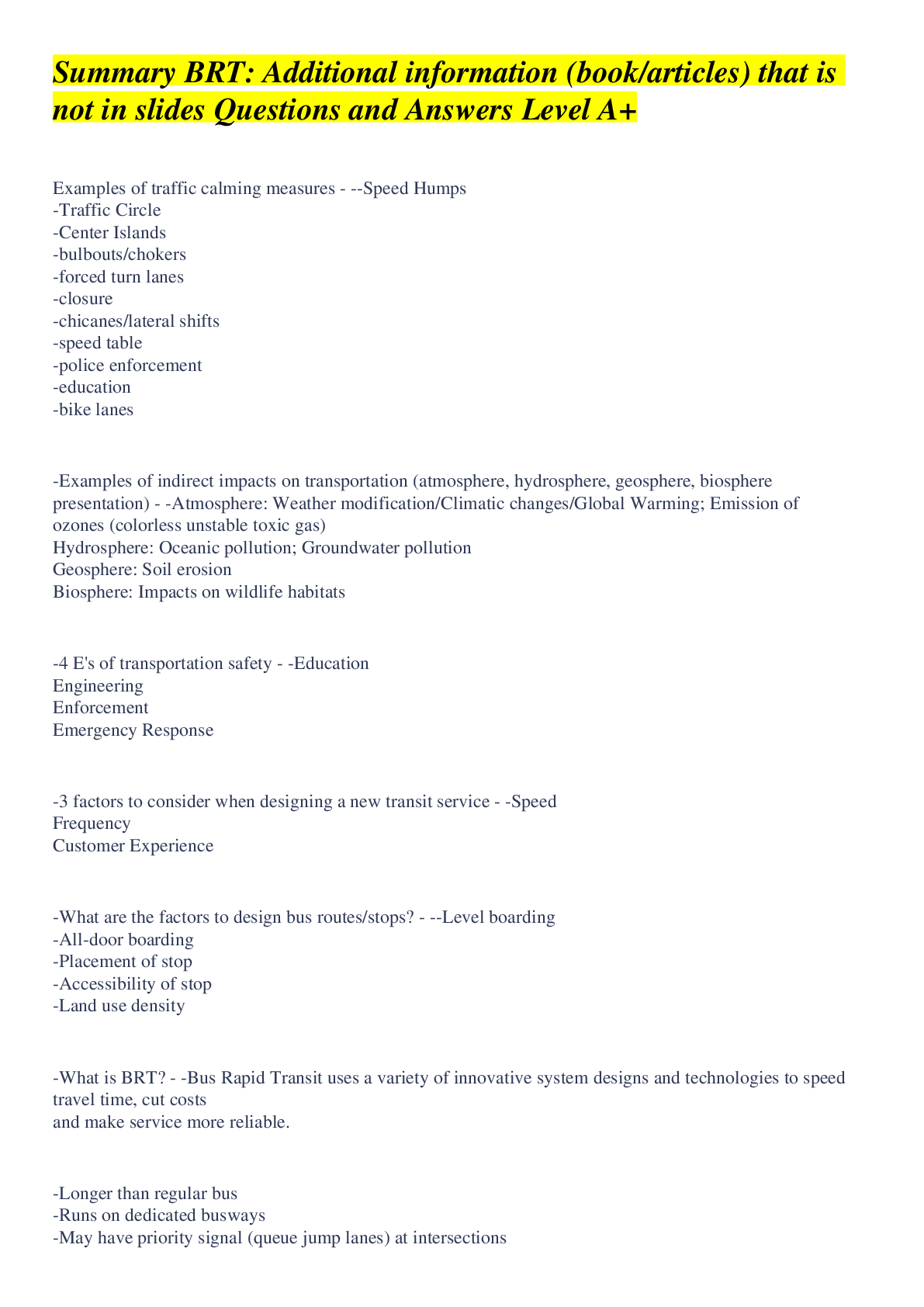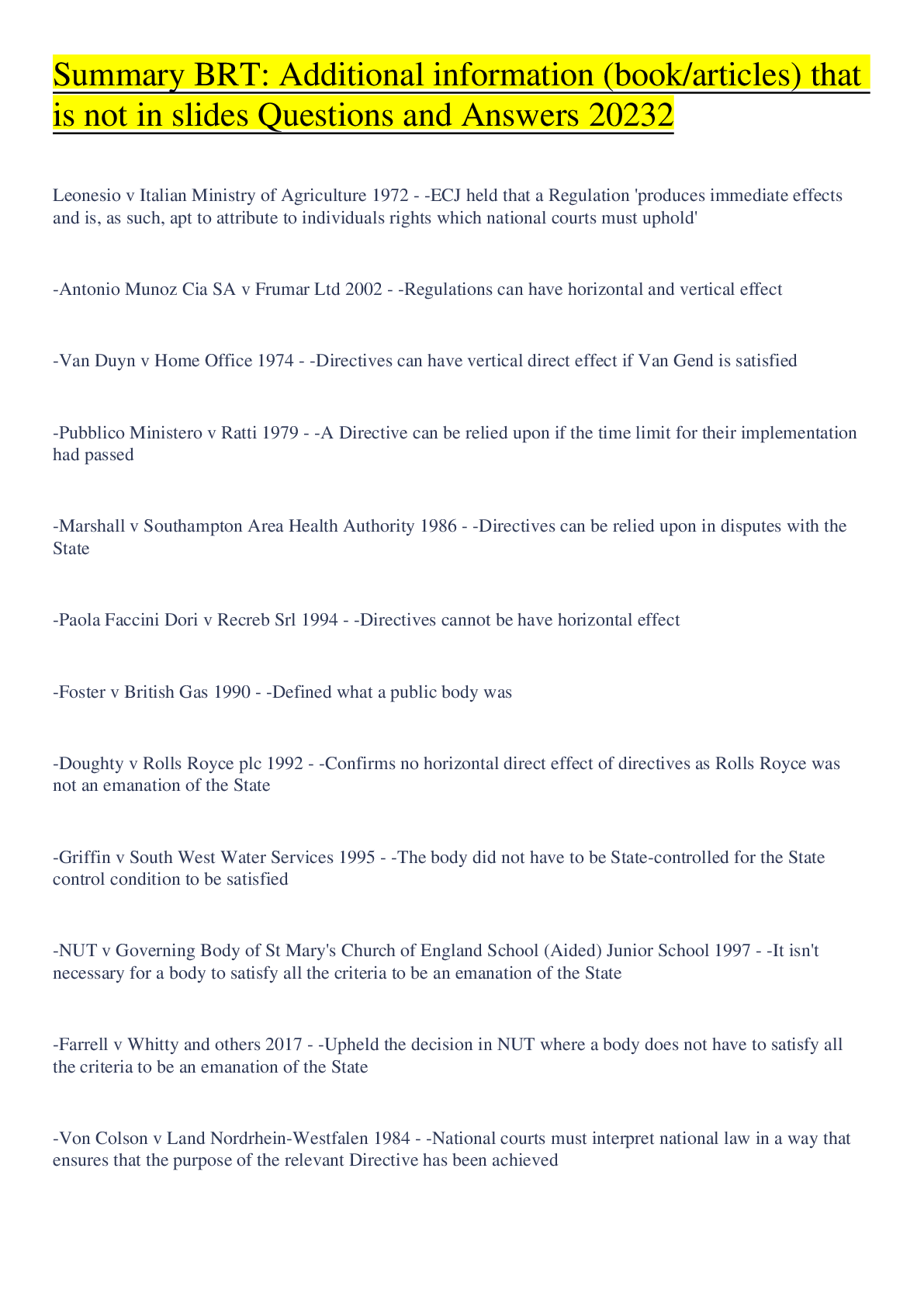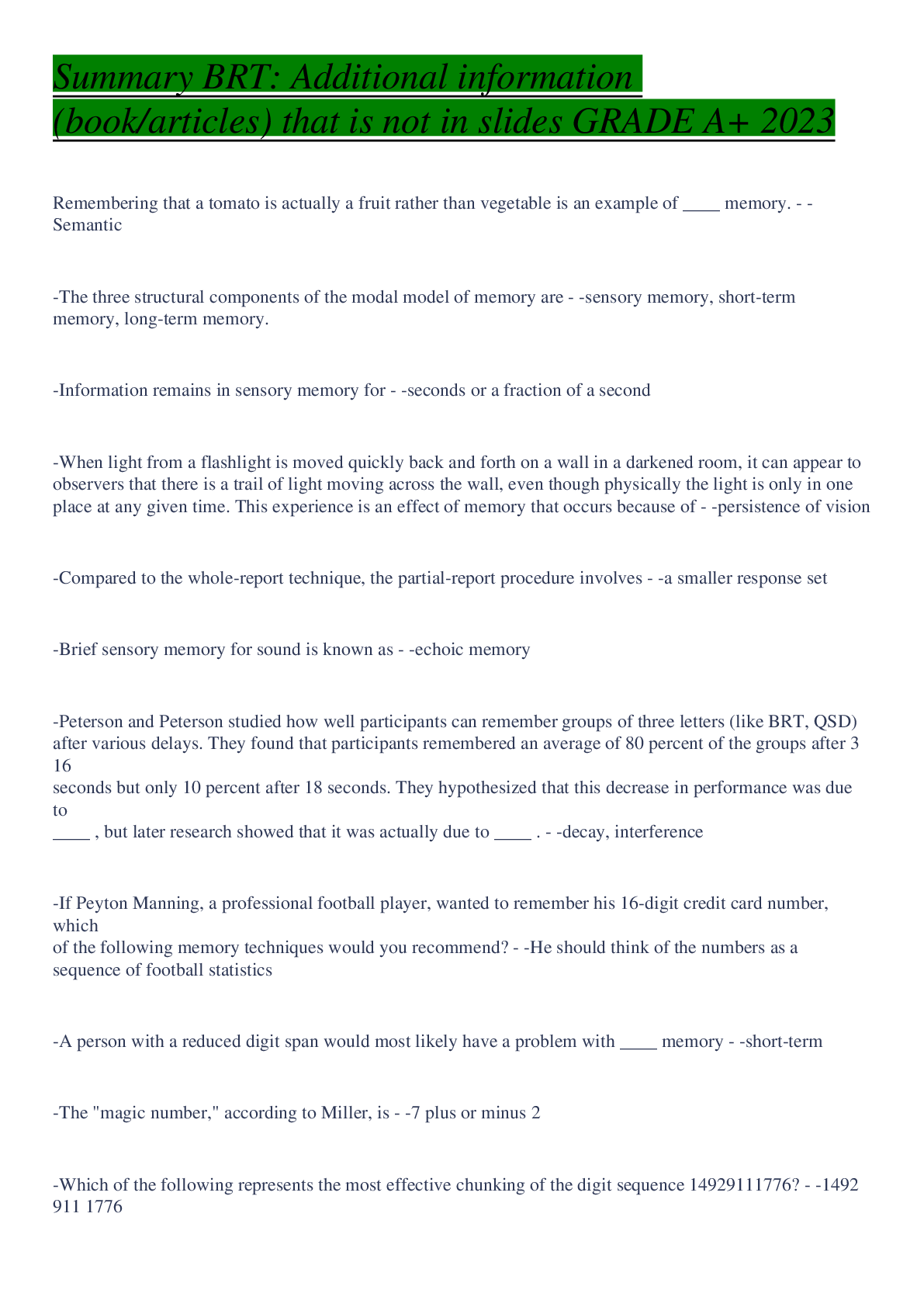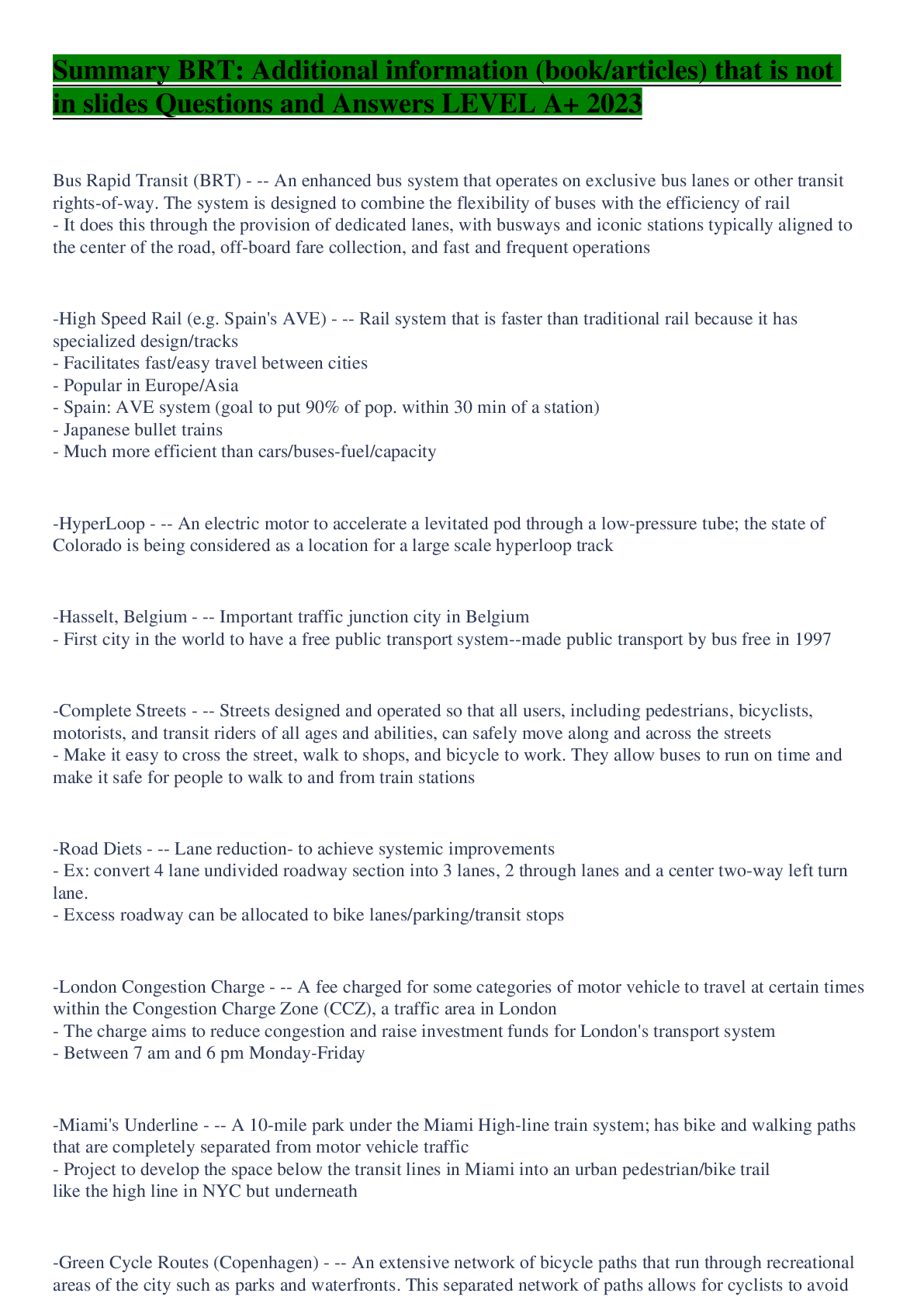Research Methods > EXAM > SUMMARY BRT: ADDITIONAL INFORMATION (BOOK/ARTICLES) THAT IS NOT IN SLIDES: Q&A - 2023 (All)
SUMMARY BRT: ADDITIONAL INFORMATION (BOOK/ARTICLES) THAT IS NOT IN SLIDES: Q&A - 2023
Document Content and Description Below
Nonverbal communication - -communication using body movements, gestures, methods of eye contact, and posture (whether seated or standing) -Barriers of effective communication - -• use of profane,... derogatory, or disrespectful language • stereotyping • use of derogatory hand gestures or body movements • stress and fatigue on the part of either party • inability to communicate in the same language • lack of cultural understanding • failure to listen actively • use of jargon • tone of voice • negative attitude • environmental distractions such as background noise -younger inmates - -provide clear, consistent instructions and consequences -older inmates - -may not be able to complete more than a one-step or two-step directions -inmates of the opposite sex - -avoid the appearance of impropriety -command presence - -body language that projects confidence, poise, and a professional demeanor -verbal command - -an authoritative statement used to direct, influence, or give orders to a person or group -courtesy - -being respectful when interacting with others and treating them in a dignified manner, regardless of status, race, gender, appearance, or behavior -active listening - -giving full attention to what is being said and taking time to understand the message without interrupting -elements of active listening - -• maintaining eye contact, facing the speaker, and leaning slightly forward to confirm attentiveness through body language • keeping an open mind and avoiding bias to hear all the facts • identifying key words that should alert you, such as "kill," "suicide," "getting out," and "hang" • identifying the intensity of speech in terms of voice volume, emotion, pitch, and tone • paraphrasing back to someone what they said to ensure you properly understood the message • asking questions for clarification or more information -radio use - -• calling for assistance • participating in general communication • identifying inmates and visitors • notifying staff of an emergency situation -FCC - -Federal Communications Commission -prohibited acts pertaining to radio use - -• transmitting nonessential or excessive signals, messages, or communication • using profane, indecent, or obscene language • willfully damaging or permitting damage to radio apparatuses • maliciously interfering with another unit's radio transmission • making unidentified radio transmissions • transmitting before the air is clear • transmitting a call signal, letter, or numeral not assigned to the agency or unit • adjusting, repairing, or altering a radio transmitter • using radio communications systems for illegal or personal business -types of radio equipment in corrections - -• handheld or portable radio, which the officer carries • radio base station, normally in the control room • the mobile radio affixed in vehicles used for transporting inmates -squelch - -a circuit that suppresses the output of a radio receiver if the signal strength falls below a certain level -radio codes - -• signals • phonetic-alpha codes • ten or numeric codes • numeric-alpha codes -signals - -a system of communication using numbers that are preceded by the word "signal" -phonetic-alpha codes - -a system of verbal communication using letter of the English alphabet only -ten or numeric codes - -a system of communication by which "10" preceds numbers that stand for specific activities -numeric-alpha codes - -a system of communication that combines numbers and letter of the alphabet, or the combination of some or all radio codes to transmit messages -interview - -a conversation between a correctional officer and an interviewee (inmate or visitor) with the goal of obtaining facts -purpose of an interview - -used to conduct investigations, obtaining facts for incidents reports, and documenting routine activities, disciplinary actions, and use of force occurrences -types of questioning techniques - -• open-ended questions • closed-ended questions • leading questions • direct questions • forced-choice questions -open-ended questions - -encourages conversation and require s the interviewee to think, reflect, and provide their opinion and feeling "What happened next?" -closed-ended questions - -asked with a specific yes or no answer in mind "Have you read your rules and regulations?" -leading questions - -avoid, because they are framed in such a way as to produce a specific response from the person being questioned "You removed the packet of candy from the canteen?" -direct questions - -combination of closed-ended and leading questions "Did you take the inmate's shoes?" -forced-choice questions - -asked to obtain a precise answer to an important fit or preference question "How many inmates were present when you hit Inmate Jones on the head?" -statement - -a permanent oral or written record of a person's account of an incident or occurrences; may or may not be made under oath -signs of deception - -physical (physiological) and behavioral -physical (physiological) signs of deception - -• increased perspiration • flushed or pale skin • dry mouth • an increased pulse rate or observable change in breathing rate -behavioral signs of deception - -• nervous movements • voice inflections [Show More]
Last updated: 1 year ago
Preview 1 out of 12 pages
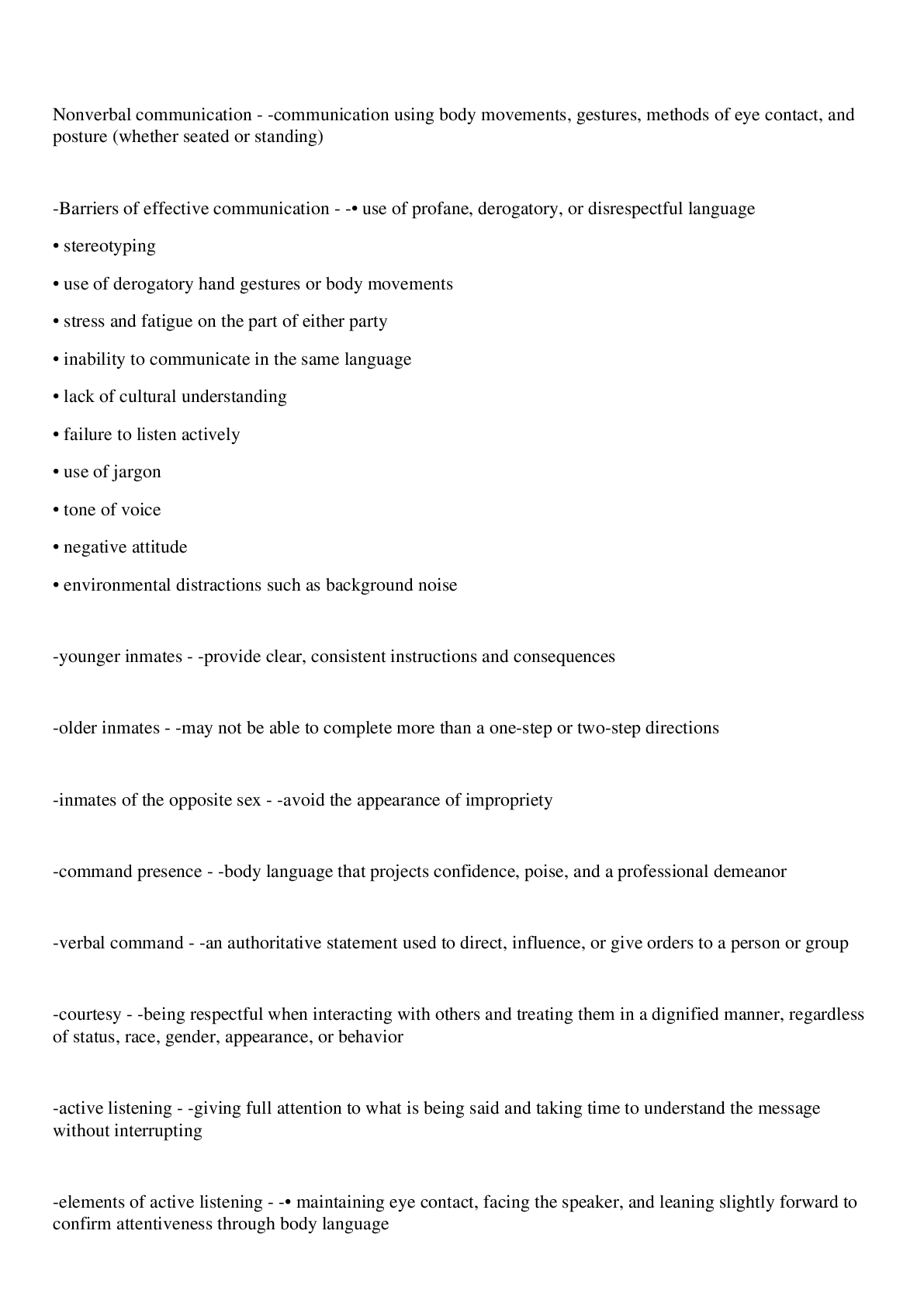
Buy this document to get the full access instantly
Instant Download Access after purchase
Add to cartInstant download
We Accept:

Reviews( 0 )
$14.50
Document information
Connected school, study & course
About the document
Uploaded On
Apr 06, 2023
Number of pages
12
Written in
Additional information
This document has been written for:
Uploaded
Apr 06, 2023
Downloads
0
Views
60

